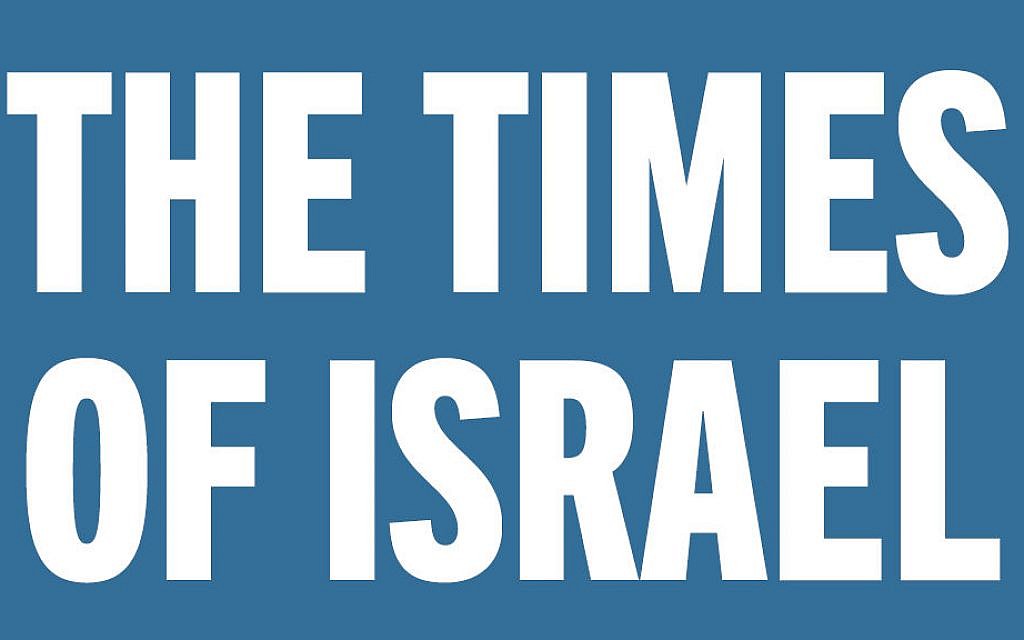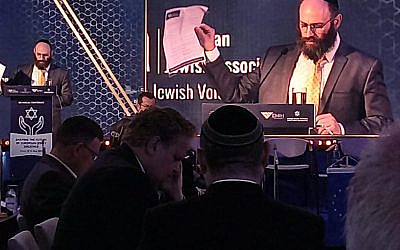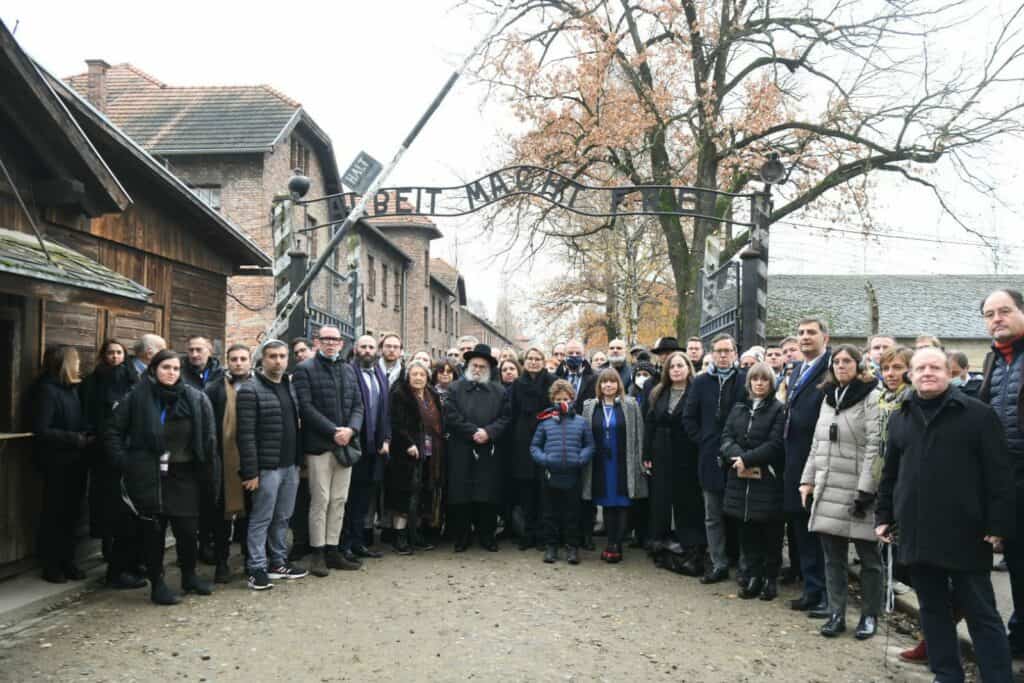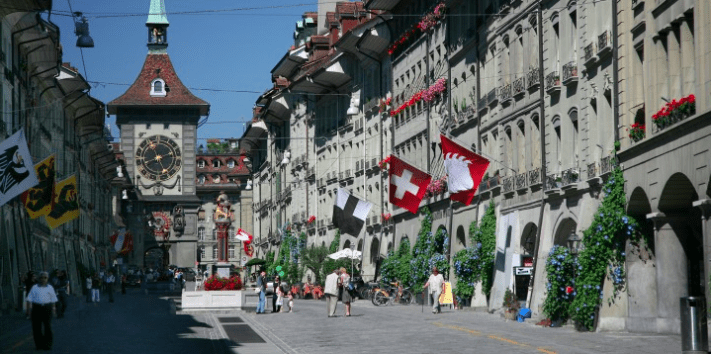„Trebuie să luptăm pentru o lume mai bună, împotriva antisemitismului, împotriva urii de orice fel împotriva oricui, minoritate sau religie, putem să o facem, voi puteţi să o faceţi, şi copiii, şi nepoţii voştri”, a declarat Gideon Lev, în vârstă de 87 de ani, un supravieţuitor al ghetoului din Terezin, cu prilejul unei conferinţe organizate de European Jewish Association (EJA), la Praga şi Terezin, înainte de comemorarea, vineri, a Zilei Internaţionale de Comemorare a Victimelor Holocaustului, transmite agerpres.
Rabinul Menachem Margolin, preşedintele EJA, a declarat, în cadrul unei întâlniri cu jurnaliştii, că „fiecare loc are un mesaj diferit”, iar „principalul mesaj al Terezin pentru noi este ‘fake news’, faptul că naziştii încercau să pretindă că i-au tratat pe evrei într-un mod foarte bun”.
„Aceste ştiri false i-au ajutat să fie elogiaţi de mulţi oameni, în loc să fie atacaţi şi arestaţi şi Terezin eliberat. Întrucât astăzi ne confruntăm cu multe ‘fake news’, care sunt unul dintre lucrurile ce le permite antisemiţilor să incite, este important pentru noi să abordăm acest lucru în special”, a adăugat Menachem Margolin.
Peste 100 de parlamentari, oficiali guvernamentali, ambasadori şi lideri ai comunităţilor evreieşti europene au făcut, la începutul acestei săptămâni, front comun împotriva ştirilor false antisemite şi s-au angajat să promoveze iniţiative educaţionale împotriva urii în cadrul conferinţei EJA de la Praga şi a unei vizite la ghetoul de la Theresienstadt.
Citeşte şi: Boris Johnson a primit 510.000 de lire ca avans la memorii, în timp ce avocaţii săi costă bugetul 220.000
Ghetoul de la Theresienstadt a fost prezentat de nazişti ca fiind o „aşezare evreiască” şi un „ghetou luminat”, dar faptele istorice dovedesc că acestea au fost „fake news”, deşi filmele de propagandă naziste şi pregătirile făcute la faţa locului în scopul de a ascunde cruda realitate au reuşit să păcălească inclusiv o delegaţie a Crucii Roşii venită în vizită la faţa locului în timpul războiului. Circa 120.000 din cei 160.000 de evrei care au fost trimişi aici au murit în timpul Holocaustului, între care 14.000 de copii. Unii dintre ei au fost trimişi în camerele de gazare de la Auschwitz, în timp ce mulţi au murit de foame şi de boli. Circa 40.000 de oameni au murit în ghetoul de la Terezin.
„Fake news”, teoria conspiraţiei şi rolul reţelelor sociale
Directorul organizaţiei britanice „Labour Against Antisemitism”, Alex Hearn, a vorbit în cadrul conferinţei EJA despre cum ştirile false despre evrei reprezintă un tipar la fel de vechi ca antisemitismul însuşi. Hearn a subliniat că antisemitismul merge dincolo de orientările politice şi este folosit de oameni pentru a câştiga putere sau pentru a se simţi puternici. El a vorbit, de asemenea, despre teoriile contemporane ale conspiraţiei antisemite şi despre rolul social media în diseminarea lor.
„Sunt atât de multe lucruri de care evreii sunt acuzaţi, inclusiv de faptul că nu joacă un rol în acest război oribil între Rusia şi Ucraina”, a spus la rândul său Menachem Margolin.
În cadrul conferinţei, o serie de parlamentari şi lideri ai comunităţilor evreieşti au vorbit despre influenţa reţelelor sociale în calitate de catalizator al adoptării teoriilor antisemite care reprezintă o ameninţare directă pentru siguranţa personală a evreilor europeni.
„Adevărul nu mai este bazat pe fapte ştiinţifice, ci pe ştiri virale şi social media. Lucrurile se întâmplă mai repede. Trebuie să luptăm împotriva unor ştiri false care ne apar repede pe telefon. Macron însuşi a fost prezentat ca o marionetă a evreilor pentru că este fost bancher şi are bani. Ştirile false folosesc aceleaşi stereotipuri împotriva evreilor, din nou şi din nou. Trebuie să luptăm împotriva oricărei ştiri false. Dacă nu le combatem, se răspândesc, şi se răspândesc foarte repede”, a declarat parlamentarul francez Prisca Thevenot, purtătoare de cuvânt a partidului Renaissance, al preşedintelui Emmanuel Macron.
„Trebuie să înţelegem că social media lucrează extrem de repede. Nu este suficient să faci legi să ţii pasul cu provocările tehnologice, trebuie să fim rapizi în a interzice discursurile care incită la ură de pe social media”, a afirmat la rândul său parlamentarul austriac David Stogmuller.
În ceea ce-l priveşte, parlamentarul portughez Alexandre Poco a subliniat importanţa educaţiei în combaterea antisemitismului. „Deşi problemele noastre ar putea să nu fie atât de mari ca ale altor ţări, trebuie să continuăm să investim în educaţie. O atitudine proactivă continuă să fie necesară. Avem legături puternice cu comunităţile evreieşti. Continuăm să promovăm viaţa evreiască, deşi suntem o ţară catolică”, a spus el în cadrul conferinţei.
„Dacă le permitem duşmanilor democraţiei să strige, atunci riscăm sfârşitul democraţiei. Antisemiţii trebuie făcuţi să simtă că nu au nicio şansă şi că vor fi făcuţi să plătească consecinţele”, a avertizat la rândul său comisarul pentru antisemitism pentru comunitatea evreiască din Berlin, Sigmount Königsberg.
La rândul său, Joel Mergui, preşedintele Consistoriului din Paris, care conduce de „20 de ani cea mai mare comunitate evreiască din Europa”, a spus că a decis să încurajeze membrii acestei comunităţi să continue să trăiască pe Bătrânul Continent atâta timp cât îi vor avea alături de ei pe decidenţi în lupta împotriva antisemitismului şi a islamismului radical. „Din cuvintele şi din acţiunile dumneavoastră vom avea certitudinea că avem un viitor în Europa”, le-a transmis el oficialităţilor prezente la conferinţă.
Citește și: Mark Rutte vrea înăsprirea regulilor privind migraţia – Black News
https://blacknews.ro/supravietuitor-al-ghetoului-din-terezin-trebuie-sa-luptam-pentru-o-lume-mai-buna-impotriva-urii-de-orice-fel/















